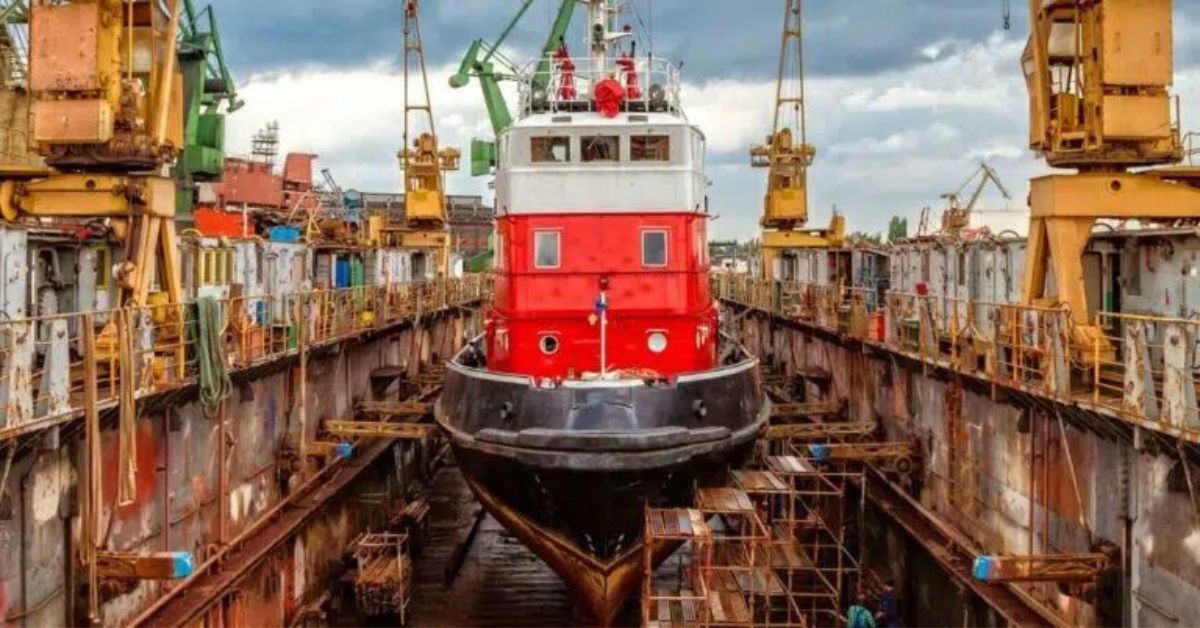Mediterranean Shipping Company SA (MSC) has initiated preliminary discussions with the Ministry of Ports, Shipping, and Waterways to identify a suitable greenfield location for establishing a shipyard to address its in-house shipbuilding and repair needs. This move is driven by a global shortage of shipbuilding slots, prompting the company to explore alternatives.
In line with the Ministry’s suggestion, MSC recently engaged in discussions with Swan Defence and Heavy Industries regarding the potential for constructing and repairing ships at their shipyard in Pipavav, Gujarat.
MSC is considering investing in a greenfield shipyard in India. The company already collaborates with a Chinese shipyard that serves as a captive facility for its shipbuilding and repair requirements. However, to comply with evolving global environmental regulations, MSC will need to retire several ships in the coming years. Currently, MSC operates a fleet of 860 container ships with a combined annual capacity of 25.5 million TEUs.
MSC faces a substantial demand for new ships over the next five years, which existing shipbuilders cannot meet due to a lack of capacity. Major shipyards are reportedly fully booked until at least 2028. Consequently, MSC is exploring the possibility of establishing its own shipyard in India to cater to its growing needs.
Discussions on the project involve MSC’s Indian unit and MSC Shipmanagement, the world’s largest in-house ship management company, which oversees MSC’s vessels exclusively. The discussions also include Ministry officials and private shipyards. While MSC has not responded to inquiries about the plans, another industry source described the project as being in its very early stages.
MSC’s ships frequently dock at Indian ports, and the company is actively seeking a reliable shipyard for repairs. Currently, MSC relies on facilities in Dubai and Colombo due to the lack of adequate repair infrastructure in India. While shipbuilding is under careful consideration, the company appears more immediately focused on establishing repair facilities if a suitable yard becomes available.
The government’s efforts to promote the shipbuilding sector, including fiscal and tax incentives, have further encouraged MSC’s interest. India’s proposed shipbuilding policy includes a ship recycling credit note scheme and fixed-rate subsidies for shipyards over a ten-year period. These measures aim to stimulate shipbuilding as part of a broader initiative to enhance manufacturing capabilities.
Under the policy, shipyards would receive subsidies of 20 per cent for standard ships, 25 per cent for specialised vessels (e.g., oil, gas, chemical tankers, and container ships), and 30 per cent for green or technologically advanced vessels. The subsidy rates would remain fixed for the scheme’s duration, which is set to run until March 2034, with a possible extension to 2047. Additionally, a Maritime Development Fund with an initial corpus of Rs 250 billion is proposed to support shipyard ventures and expansions.
The credit note scheme, which offers fleet owners a rebate on the cost of building new ships in India equivalent to 40 per cent of the scrap value of dismantled ships, is another attraction for global entities like MSC and Maersk. Enhanced recycling facilities in Alang, Gujarat, in compliance with international standards, position India as a promising destination for green ship recycling, which further complements the proposed incentives.
An industry official emphasised that the combination of these policy initiatives is drawing interest from global players such as MSC, Maersk, and Hanwha Ocean. This interest is seen as a significant opportunity for India, with potential benefits including improved infrastructure, job creation, growth in the shipbuilding industry, and economic development.







